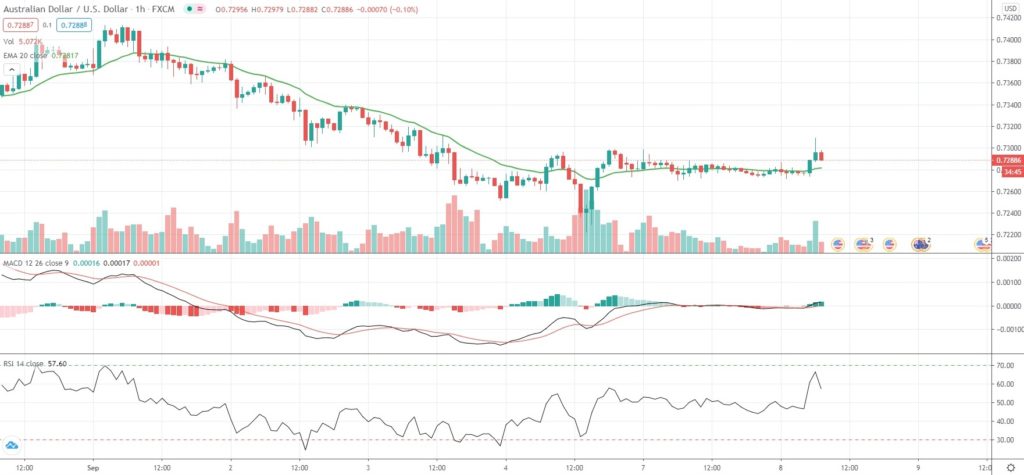AUD/USD regained ground on Tuesday and tested the 0.7300 mark in early European session, as risk appetite seemed to have returned to Asian stock markets, while the US Dollar held steady against a basket of major peers ahead of the highly anticipated European Central Bank’s policy decision, scheduled on Thursday.
The central bank is expected to keep its policy stance unchanged, while market players are expecting an update on inflation and the bank’s view regarding the Euro’s recent strength.
All benchmark Stock Indices in Asia closed higher on Tuesday, with Australia’s ASX rising the most, by 0.98%.
Meanwhile, United Overseas Bank (UOB), a leading financial institution in Asia Pacific area, expects further upside in AUD/USD and provided clients with updated forecasts.
“Both the EUR and AUD remain the key beneficiaries of the weaker US Dollar in the Developed Market space. We upgrade our positive EUR/USD and AUD/USD point forecasts further,” Heng Koon How, Head of Markets Strategy at UOB, said.
The Aussie has tracked recent performance in international stock markets, more particularly in the US, with positive correlation with tech stocks providing support to the currency. The Aussie dollar has also benefited from an economic recovery in China, which has bolstered prices of key Australian commodity exports – iron ore and coal.
“We raise our AUD/USD point forecasts further to 0.74 for 3Q20, 0.75 for 4Q20 and 0.76 for 1Q21 and 2Q21 (from 0.71 for 3Q20, 0.72 for 4Q20 and 0.73 for 1Q21 and 2Q21 previously),” UOB’s How said.
Earlier Tuesday a survey by National Australia Bank showed business confidence in the country had improved in August from a month ago, but still remained negative across all industries.
As of 7:23 GMT on Tuesday AUD/USD was edging up 0.19% to trade at 0.7289, after earlier touching an intraday high at 0.7309, or its strongest level since September 3rd (0.7339). The major pair advanced 3.31% in August, while marking its fifth consecutive month of gains. Year-to-date, AUD/USD has risen 3.89%.
In terms of economic calendar, no relevant macroeconomic reports or other events which may affect AUD/USD valuation are scheduled later on Tuesday.
Bond Yield Spread
The spread between 2-year Australian and 2-year US bond yields, which reflects the flow of funds in a short term, equaled 12.3 basis points (0.123%) as of 6:15 GMT on Tuesday, up from 11.8 basis points on September 7th.
Daily Pivot Levels (traditional method of calculation)
Central Pivot – 0.7281
R1 – 0.7292
R2 – 0.7309
R3 – 0.7320
R4 – 0.7331
S1 – 0.7264
S2 – 0.7253
S3 – 0.7236
S4 – 0.7218






